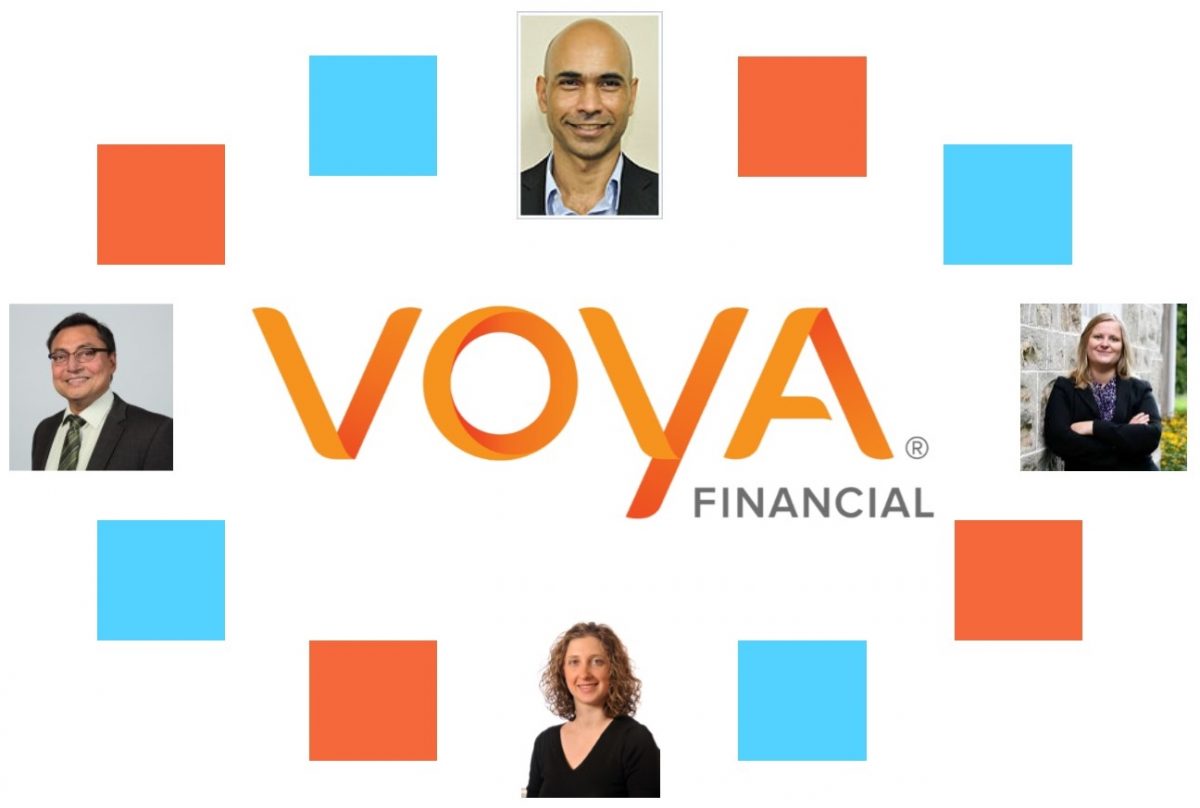
Each year the Voya Financial Fund supports the marketing department by inviting marketing experts from around the globe to speak regarding advancements in the world of marketing. This year’s Voya Financial Colloquium was centered on Corporate Social Responsibility Research in Marketing. On April 8, four distinguished scholars from three different countries gathered at UConn to speak to the marketing and business law faculty and doctoral students about their most recent findings and exciting futures of corporate responsibility marketing. Find more about their speeches below.
Stefanie Robinson, Assistant Professor of Marketing, NC State Poole, College of Management
Doing Good from the Start? Corporate Social Responsibility May Hurt New Brands
Corporate social responsibility (CSR) is increasingly used as a key part of a firm’s branding strategy, especially for new brands. Unfortunately, the data here demonstrate that when new brands tout CSR activity, product trial and evaluations decrease. In her presentation, Prof. Robinson talked about how her research team (a) parsed evaluations into two components, product efficacy and firm character and (b) examined differential outcomes for established versus new brands. They found CSR impacts both new brands’ evaluated efficacy and character—increasing the latter but decreasing the former. Conversely, CSR doesn’t impact established brands’ efficacy evaluations, but does increase character perceptions. Experiments to examine process suggest that inferences drawn follow a compensatory model; because consumers see investments in moral behavior as drawing a new brand’s resources away from core production activities or “the business at hand,” CSR can decrease evaluations of competence while simultaneously increasing evaluations of character. Happily for new brands, they found this compensatory inference-making relies on a true perception of trade- off; thus, negative effects are reversed if CSR is perceived as central to the product’s raison d’être.
CB Bhattacharya, Professor of Marketing, European School of Management Technology
Awakening the Green Self: Stakeholder Reactions to Sustainability
The sustainability movement is stronger than ever before. Almost all corporations, large and small, now have some forms of sustainability initiatives in place. Despite the widespread belief that sustainability can simultaneously improve societal welfare and corporate performance, most companies are largely in the dark when it comes to understanding the conditions under which their stakeholders – customers, employees, investors, suppliers – react to these initiatives. As a result, investments in sustainability are typically underleveraged. Using insights drawn from an extensive empirical research program, Prof. Bhattacharya’s presentation explored when, how and why stakeholders act on and react to sustainability initiatives. Armed with this insight, the talk illuminated strategies via which companies can maximize the contribution of their sustainability initiatives to the triple bottom line.
Sankar Sen, Professor of Marketing, Baruch College, Zicklin School of Business
Consumer Reactions to CSR Contribution Type
While companies contribute in different ways to the corporate social responsibility (CSR) issues they support, little is known about the effects of varying CSR contribution types on consumers’ evaluations of the contributing company. In his presentation, Prof. Sen discussed consumer reactions to two basic contribution types – money versus in-kind – in the CSR domain of disaster relief to demonstrate, through five studies, that while consumers evaluate a company more favorably when it makes in-kind rather than monetary contributions of equivalent value to CSR issues that are perceived to be less controllable, they evaluate it more favorably when it makes monetary rather than in-kind contributions to CSR issues that are perceived to be more controllable. He showed that this interaction between contribution type and perceived issue controllability is more likely to manifest when controllability is accessible in the minds of consumers, and is driven by the extent to which the disparate emotionality of each contribution type matches the emotional state evoked by CSR issues of varying perceived controllability, producing processing fluency.
Bonnie Simpson, Assistant Professor of Marketing, DAN Management and Organizational Studies, Western University
Designing Effective Appeals to Encourage Prosocial Consumer Behavior
Even when you act alone, are you considering what others might do? When you consider an act, do you think about who might benefit from it? Prof. Simpson’s talk presented emerging research on how we change our behavior based on the way in which an appeal is presented to us. Specifically, different strategies that marketers often use to entice consumers to act are examined in the context of prosocial behaviors, including normative appeals (what others are doing, or expect us to do) and benefit appeals (that focus on what the benefit will be to the self or others). Effective approaches to using such appeals need to consider important moderating variables, and the influences of self-construal, reference group, and setting will be demonstrated across a range of studies in prosocial behavioral contexts such as grasscycling, composting, local eating, and charitable donations. Overall this research demonstrates a variety of tools that marketers can use to develop a match between appeal type and situation in an effort to maximize effectiveness.